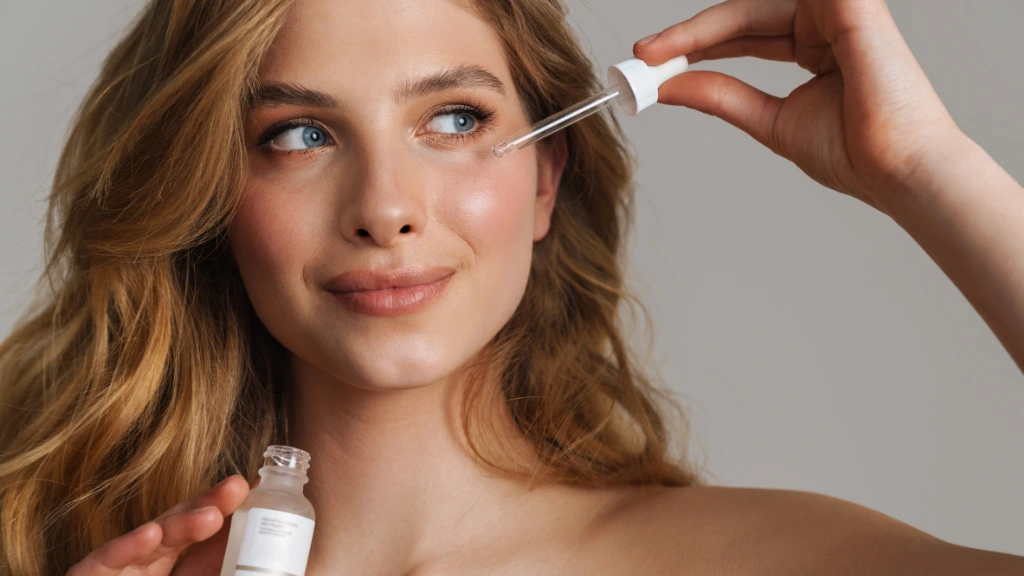The world of skincare has exploded over the past decade, with countless products promising everything from hydration and radiance to anti-aging and acne prevention. But with so many options, it’s easy to wonder: how many skincare products do I really need?
Let’s dive into the essentials to build a simple yet effective skincare routine that supports healthy skin without overcrowding your bathroom shelves or draining your wallet.
You May Also Like: How Your Calorie Needs Change with Age: Essential Tips for Every Decade
Why Keep Your Skincare Routine Simple?
While it may be tempting to try every new product that comes out, a complex skincare routine can sometimes do more harm than good. Using too many products can lead to issues such as irritation, clogged pores, or even increased sensitivity due to ingredient interactions. Simplicity is key for most people, as a streamlined routine reduces the risk of overloading your skin and helps it maintain a natural, healthy balance.
Benefits of a Simple Routine:
- Less irritation and inflammation from overuse of active ingredients.
- Lower cost since you’re buying fewer products.
- Easier to maintain consistently, so you’re more likely to stick with it.
- Better for sensitive skin, as you’re less likely to trigger reactions.
Understanding the Basics: Essential Skincare Products
Not all skincare products are created equal, and not every product is a must-have for everyone. Here’s a breakdown of five core products that form the foundation of a great skincare routine.
1. Cleanser
A good cleanser is the foundation of any skincare routine. It helps remove dirt, oil, makeup, and environmental pollutants that build up on your skin throughout the day or night. Look for a gentle, sulfate-free cleanser suited to your skin type.
- Oily skin: Opt for a gel-based cleanser to manage excess oil without over-drying.
- Dry skin: A creamy cleanser will provide hydration while removing impurities.
- Sensitive skin: Use a fragrance-free, gentle cleanser that won’t cause irritation.
When to Use: Morning and night.
2. Moisturizer
A moisturizer is essential, regardless of skin type, as it helps maintain the skin’s barrier, prevent moisture loss, and keep your skin hydrated. Select a moisturizer based on your skin type to avoid issues like greasiness or dryness.
- Oily skin: Go for a lightweight, oil-free moisturizer to avoid adding excess oil.
- Dry skin: Choose a richer, creamier formula with ingredients like hyaluronic acid, ceramides, or glycerin.
- Sensitive skin: Look for a moisturizer with minimal ingredients, free from fragrances and harsh chemicals.
When to Use: Morning and night.
3. Sunscreen
Sunscreen is non-negotiable and is arguably the most important product in any skincare routine. Using sunscreen daily helps protect your skin from harmful UV rays that cause premature aging, hyperpigmentation, and even skin cancer. Choose a broad-spectrum sunscreen with at least SPF 30.
- Sensitive skin: Try mineral sunscreens with zinc oxide or titanium dioxide, as they’re less likely to cause irritation.
- Acne-prone skin: Opt for non-comedogenic sunscreens that won’t clog pores.
When to Use: Every morning, and reapply throughout the day if you’re outdoors.
4. Exfoliator (1-3 Times a Week)
Exfoliating helps remove dead skin cells, allowing your other skincare products to penetrate better and preventing clogged pores. You can choose between physical exfoliators (scrubs) or chemical exfoliators (AHAs or BHAs), though chemical exfoliators tend to be gentler and more effective over time.
- Oily or acne-prone skin: Salicylic acid (BHA) can be particularly effective in keeping pores clear.
- Dry or mature skin: Glycolic acid (AHA) works well to remove dead skin cells without drying out the skin.
- Sensitive skin: Lactic acid (a gentler AHA) can be a good option.
When to Use: 1-3 times a week, depending on skin sensitivity.
5. Serum (Optional but Beneficial)
Serums are concentrated formulas designed to target specific skin concerns like aging, pigmentation, or acne. While not strictly necessary, a serum can be a helpful addition if you have particular skin goals in mind.
- Dry or mature skin: Hyaluronic acid serums are excellent for adding extra hydration.
- Acne-prone skin: Look for serums containing niacinamide or salicylic acid.
- Dull or pigmented skin: Vitamin C serums can brighten and even out skin tone.
When to Use: After cleansing and before moisturizing, typically in the morning for brightening serums or at night for repair-focused serums.
Customizing Your Routine Based on Skin Needs
While these five products cover the basics, some people may need additional products or ingredients tailored to specific skin concerns. Here are a few additional options you can incorporate sparingly if you find you need them.
Eye Cream
Eye creams are designed to target the delicate skin around your eyes, which can be prone to dryness, fine lines, or puffiness. While not essential, if you have concerns in this area, a dedicated eye cream may be beneficial.
Face Oil
Face oils can be helpful for those with dry or mature skin, as they provide additional hydration and a natural glow. However, they’re generally not necessary for those with oily skin, as they can be too heavy.
Masks (1-2 Times a Week)
Masks can be a nice treat, especially if you’re dealing with specific skin concerns like dullness, dryness, or congestion. However, they should be used sparingly and shouldn’t be relied on as daily essentials.
How to Avoid Overloading Your Skin
Many people fall into the trap of using too many products in the hopes of speeding up results, but this can actually backfire. Here are a few tips to avoid overwhelming your skin:
- Introduce products gradually: When trying a new product, start by using it a few times a week to see how your skin reacts.
- Don’t layer too many actives: Combining ingredients like retinol, AHAs, BHAs, and vitamin C can lead to irritation. Stick to one active ingredient at a time unless advised by a dermatologist.
- Listen to your skin: If you notice signs of irritation or breakouts, scale back on products, especially active ingredients.
Final Thoughts: Less Is Often More
The beauty industry is full of products that promise amazing results, but that doesn’t mean you need them all. For most people, a basic routine of a cleanser, moisturizer, and sunscreen is enough to maintain healthy skin. If you want to address specific concerns, consider adding a serum or an exfoliator, but keep it simple and be mindful of your skin’s unique needs. Remember, skincare is about consistency and choosing products that support your skin, not overwhelming it.
With the right essentials and a balanced approach, you can achieve a healthy, glowing complexion without a cabinet full of products. Simplify your routine and watch your skin—and wallet—thank you!










